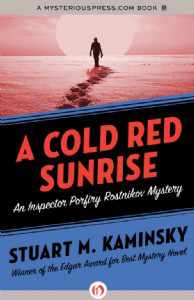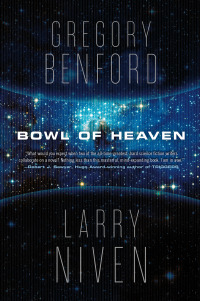The Dark Winter by David Mark
 Monday, October 22, 2012 at 9:33PM
Monday, October 22, 2012 at 9:33PM Published by Blue Rider Press on October 25, 2012
Some novels about serial killers challenge the reader to discover the pattern that links the murderers. The Dark Winter is not one of those. The pattern will become clear to the reader about a third of the way through the novel. The police, who are a touch slow to see the obvious, figure it out by the novel’s midway point. The more challenging puzzles are the killer’s identity and motivation.
Detective Sergeant Aector McAvoy of the Humberside Police responds to a scream that turns out to be the last sound made by an adolescent girl named Daphne before she is hacked to death with a machete. Born in Sierra Leone, Daphne was adopted after her parents became victims of genocide. McAvoy would like to lead the investigation but he is instead assigned to tell Barbara Stein-Collinson that her brother Fred has been found dead in a lifeboat off the coast of Iceland. Fred Stein had survived the sinking of a trawler at the same location more than thirty years earlier -- one of four that sank during the Black Winter -- and Fred had returned at the request of a documentarian to lay a wreath in the water to honor the dead. Although Barbara believes that Fred committed suicide, we know from the novel’s prologue that Fred was knocked unconscious and thrown into the lifeboat.
Fans of crime novels will immediately suspect that the two killings are related. The link will be clear to the savvy reader when a third killing occurs, and McAvoy eventually figures it out. The real question is the killer’s identity. The answer, of course, depends upon unlocking the killer’s motivation for following the pattern. In that regard, the resolution of the mystery is at least plausible (by thriller standards, anyway) and modestly clever. The novel’s conclusion, however, is a contrived attempt to add a final “thrill.” It doesn’t detract from the story that precedes it but it doesn’t deliver the payoff that David Mark must have intended.
Mark writes fast moving prose. Short sentences. Omits pronouns. When he isn’t doing that, he’s actually a decent wordsmith with some literary flair. I’d like to see more of that in the next book. It’s more appealing than strings of two word sentences.
Although this is Mark’s debut novel, McAvoy comes with the sort of baggage that most series protagonists accumulate over the course of a half dozen books. His face and career are scarred by an incident that took place many months earlier. Although he is mildly obsessive, a bit neurotic, and harbors an unhealthy passion for his job, he has the orderly mind of an accountant -- a trait that has condemned him to a desk job, managing databases. He is therefore an unhappy cop, one who is burdened with the self-doubt that victimization can instill.
Half the story -- the better half -- focuses on McAvoy’s conflict with police officers who are more keen on making an arrest than on finding the guilty party. McAvoy, who is also burdened with a conscience, wants the job done right, statistics be damned. This makes him an interesting character, someone I’d welcome meeting again.
RECOMMENDED
 TChris |
TChris |  Post a Comment |
Post a Comment |  David Mark,
David Mark,  Recent Release in
Recent Release in  Thriller
Thriller 


